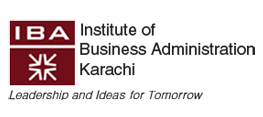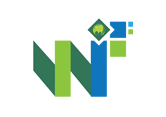Islamic social finance ecosystem and the role of crowdfunding
Submission Type
Paper Presentation
Abstract/Description
Purpose: Majority studies discuss the tools of Islamic social finance rather than an ecosystem in itself. Therefore, this study focuses on developing the spectrum of Islamic social finance and identifying the issues faced by the key players within the spectrum. Moreover, the study also aim at resolving the issues through proposing technological advancement in the form of crowdfunding.
Method: In order to achieve the objectives, a qualitative library research approach is used.
Findings: This study categorize the Islamic social finance spectrum into three categories namely, impact oriented institutions, revenue oriented institutions and profit oriented institutions. A number of issues have been identified on the basis of the categorization. The study emphasizes on the role of crowdfunding in overcoming the issues.
Originality/value: Majority of previous studies focused on Islamic social finance institutions where each study would discuss an institution, identify the problems and provide solution. This paper attempts to discuss social finance institutions as an ecosystem and then discusses the issues in each part of the ecosystem. Later, a solution is proposed through implementation of a crowdfunding platform.
Implications: This paper aims to open the door for academic debate to enhance Islamic Social finance theory and provide grounds for the practitioners and academicians for implementation of technological tools for bring the better social impact.
Keywords
Islamic Social Finance Spectrum, Waqf, Zakat, Microfinance, Sadaqah, Crowdfunding
Session Chair
Dr. Aishath Muneeza, Associate Professor, INCEIF, Malaysia
Session Host
Mr. Muhammad Raza, Customer Support & General Services, Meezan Bank Limited
Start Date
30-5-2022 5:00 PM
End Date
30-5-2022 5:15 PM
Recommended Citation
Khan, A., Sukmana, R., & Jan, W. (2022). Islamic social finance ecosystem and the role of crowdfunding. IBA CEIF World Islamic Finance Forum (WIFF). Retrieved from https://ir.iba.edu.pk/wiff/2022/agenda/5
COinS
Islamic social finance ecosystem and the role of crowdfunding
Purpose: Majority studies discuss the tools of Islamic social finance rather than an ecosystem in itself. Therefore, this study focuses on developing the spectrum of Islamic social finance and identifying the issues faced by the key players within the spectrum. Moreover, the study also aim at resolving the issues through proposing technological advancement in the form of crowdfunding.
Method: In order to achieve the objectives, a qualitative library research approach is used.
Findings: This study categorize the Islamic social finance spectrum into three categories namely, impact oriented institutions, revenue oriented institutions and profit oriented institutions. A number of issues have been identified on the basis of the categorization. The study emphasizes on the role of crowdfunding in overcoming the issues.
Originality/value: Majority of previous studies focused on Islamic social finance institutions where each study would discuss an institution, identify the problems and provide solution. This paper attempts to discuss social finance institutions as an ecosystem and then discusses the issues in each part of the ecosystem. Later, a solution is proposed through implementation of a crowdfunding platform.
Implications: This paper aims to open the door for academic debate to enhance Islamic Social finance theory and provide grounds for the practitioners and academicians for implementation of technological tools for bring the better social impact.



